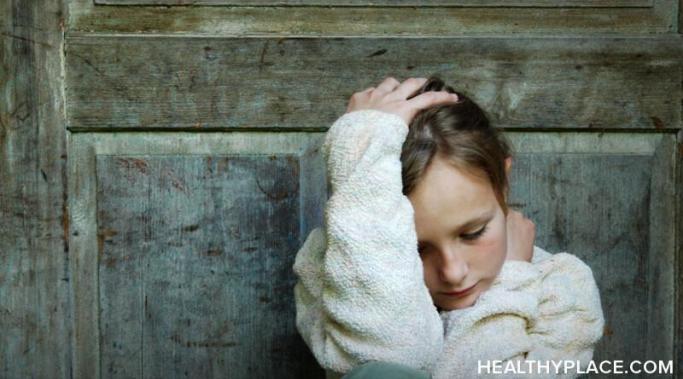Learned helplessness is a phenomenon that occurs when someone repeatedly faces negative experiences that they can't control, and eventually, they stop believing they have any agency at all. It's something that sabotages my life over and over.
Guilt
Mental resistance is something we all experience, but for a long time, I didn't realize there was actually a name for it, or a reason it happened besides me being lazy, horrible and bad. Mental resistance is that feeling where you want to do something a little differently to improve your life, but for some reason, you're just stuck.
A common bit of wisdom when it comes to mental illness recovery is that recovery isn't linear. You won't necessarily go from "sick" to "healthy" in a straight line. You will likely have setbacks, backslides, and slip-ups and your journey might look more like "sick," "sicker," "better??" "worse," "functional but still mentally ill." In my experience, this back and forth may continue for years. I can intellectually appreciate that recovery is not a linear process, but emotionally, it often feels like I'm failing.
Are you using old coping mechanisms that no longer serve you? Coping mechanisms are habits and behaviors that we use in order to cope with problems we can't necessarily solve. For instance, if you have to take a big test and it gives you tremendous anxiety, you can't just not take the test or simply stop being anxious. Instead, you need to cope with your anxiety to get through the experience. But what happens when the old coping mechanisms we use actually start causing problems instead of solving them?
There are three lessons vital to rape survivors. With convicted sex offender Brock Turner's release from prison and Jared Fogle's lawsuit blaming the victim's parents for her "destructive behavior," sexual assault has been in the media a lot lately. I, myself, am a sexual assault survivor whose attacker got off on a technicality. Part of my healing was writing a recently published Bible study for sexual assault survivors. There were three lessons I learned that are vital to rape survivors.
There are three lies rape victims believe, and these lies are common. One in six American women and one in 33 American men will be sexually assaulted at some point in their lives, according to the Rape, Abuse and Incest National Network (RAINN). That's just the ones who reported the rape, and RAINN estimates that 68 percent of rapes go unreported. I've heard that if you factor in unreported rapes, it's one in four American women and one in 10 American men. This raises the questions "Why not report it?" The simple answer is usually one of three lies that rape victims believe.
When should the symptom-induced guilt and shame end and responsibility in mental illness begin? Chris T. (actual person, name changed) has been diagnosed with bipolar disorder. One of the ways his bipolar manifests is hypersexuality. This symptom drives Chris to act out sexually. He's a married man and over the years has had two extramarital relationships. He has come perilously close on more than one occasion to losing his entire family. Chris feels guilt and shame. He doesn't deny responsibility in his mental illness, but his wife is torn apart because of his actions.
Death and Grief are Costly
Mentally, emotionally, physically and financially, death and grief are costly. In third place behind the purchase of a home and weddings, funerals are one of the costliest purchases a family will make. The average funeral costs $7-10,000 with a casket; a cremation service typical runs $3000. Yes, death can be quite a racket.
What Fuels the High Cost of Grief
In many instances, it's guilt and a sense of doing right by the deceased. A morbid sense of "keeping up with the Jones' also takes over when death comes to call. No one wants to envision his or her loved one in a pine box, lacking flowers, lacking music, a eulogy and the niceties of a departure. Yet the realities of relationships may be far different from the warm tones of rubbed oak, hushed tones, loving remembrances and glorious notes. We do our best and wonder if it is enough - perhaps if we are enough. Guilt keeps us up at night, gives us migraines, creates waves of grief while standing in the grocery line and can interfere with our cognitive abilities.







